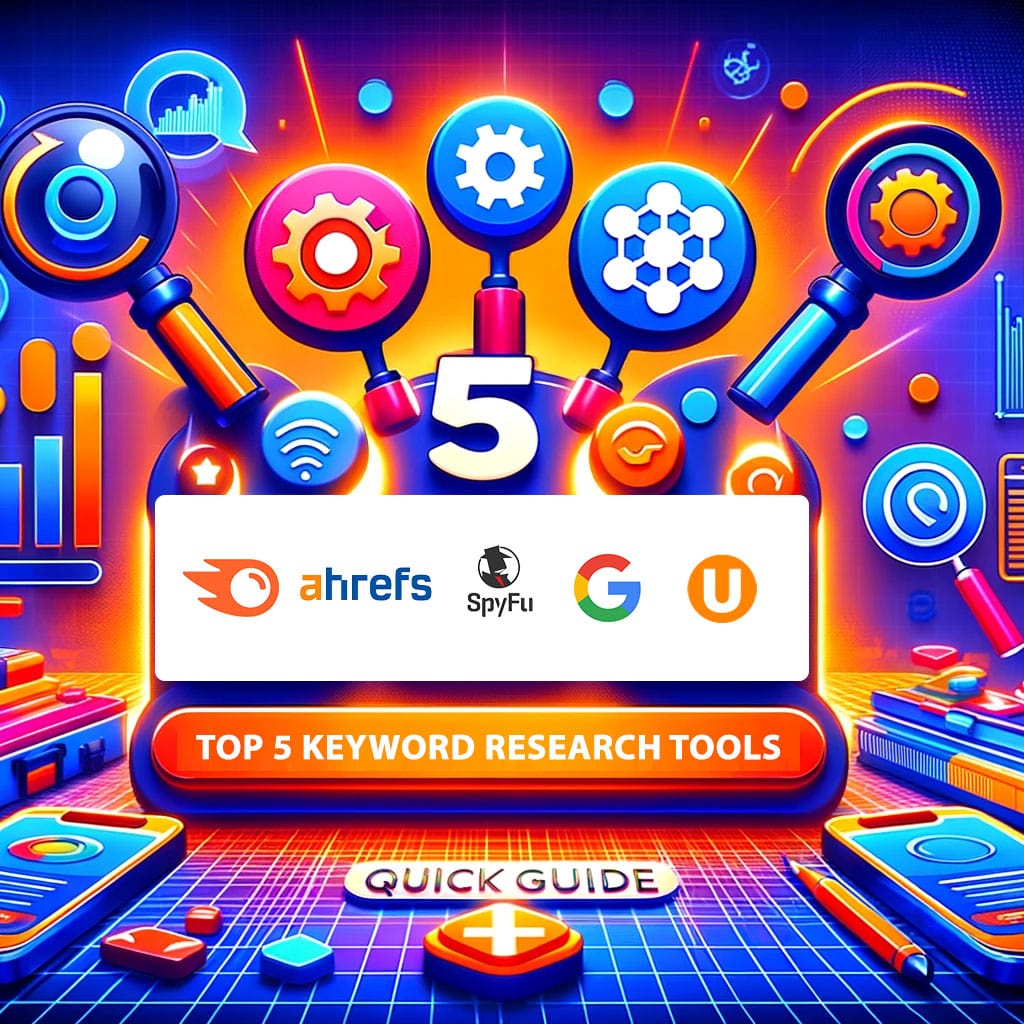
In SEO and content marketing, keywords form the backbone of a successful strategy, guiding you towards understanding what your audience seeks. With myriad tools available, choosing the right one can be daunting. Here’s a comprehensive look at five leading keyword research tools, assessing their strengths and weaknesses, and who might benefit the most from each.
1. SpyFu
SpyFu: Established in 2005, SpyFu is a popular competitive analysis tool for SEO and PPC, known for providing deep insights into competitors’ strategies.
Strengths: SpyFu excels in competitive analysis. It allows users to view the keywords competitors have bought on Google Ads and the keywords they’re ranking for. Its intuitive interface and detailed reporting make it a go-to for understanding competitors’ strategies.
Weaknesses: Its database, while extensive, isn’t as vast as some other tools. The data focuses primarily on the U.S. market, which might be limiting for global users.
Best For: SpyFu is excellent for small to medium-sized business owners and marketers who want to understand and outperform their competition in PPC and SEO strategies.

What we like about SpyFu:
We put SpyFu first because it's the underdog, and we really like it. Their free version is very handy and you'll find useful keyword information without even signing up. They have been improving every year and the tools seem to produce data that compare in accuracy to our next two picks.Tech360 Team
2. SEMRUSH
SEMrush: Launched in 2008, SEMrush is a widely acclaimed comprehensive digital marketing suite, used by millions of professionals for SEO, content, social media, and
Strengths: SEMrush is a comprehensive tool that offers detailed keyword research, site audits, and competitor analysis. Its keyword magic tool provides extensive lists of keyword variations and is particularly strong in understanding keyword difficulty and domain analytics.
Weaknesses: SEMrush can be overwhelming for beginners due to its vast array of features and relatively high cost.
Best For: This tool is ideal for SEO professionals, agencies, and larger businesses that need an all-encompassing tool for deep SEO, content marketing, and competitive analysis.
Ready to take your SEO game to the next level? Maximize Your SEO Potential with SEMrush today and unlock the full potential of your digital marketing strategy!

Why we like SEMRush:
It's hard to argue it's not one of the two best SEO tools out there. We've been using the paid version for a couple of years now and I like the interface and the way it formats the data in the dashboard. It's really hard to say it's better than Ahrefs, but it comes down to how well you can use the tools. You can't go wrong with SEMrush!Tech360 Team
3. Ahrefs
Ahrefs: Starting in 2011, Ahrefs has grown into a favorite tool among SEO experts worldwide, particularly renowned for its backlink analysis capabilities.
Strengths: Known for its robust backlink analysis, Ahrefs is also formidable in keyword research. Its keyword explorer offers global volume data, click metrics, and updates its database frequently for fresh information.
Weaknesses: Ahrefs comes with a steep learning curve and a premium price, making it less accessible for individuals or small businesses on a tight budget.
Best For: Ahrefs is perfect for SEO specialists and larger agencies needing detailed insights into backlinks and keyword profiles globally, making it a solid choice for extensive, data-driven campaigns.

Why we likeAhrefs:
This is one of top two SEO tools in existence. Many elite pros use this tool. Between this and SEMRUSH is just splitting hairs. Some say Ahrefs backlink data goes deeper, some say otherwise. But the fact they offer a free version that do quite a bit, and their resources go on for days. It's learning curve and interface may seem more complex to a new user though.Tech360 Team
4. Google Keyword Planner
Google Keyword Planner: Introduced as part of Google AdWords, Google Keyword Planner is a fundamental, go-to tool for advertisers and SEO beginners seeking keyword ideas and traffic forecasts directly from Google’s search data.
Strengths: Directly integrated with Google Ads, this free tool provides keywords and traffic estimates based on Google’s own data. It’s straightforward and an excellent starting point for beginners.
Weaknesses: The tool is primarily designed for advertisers, so some features might not cater to those looking for more organic SEO insights. Data might be more generalized than other specialized tools.
Best For: Google Keyword Planner is ideal for beginners, small business owners, or anyone starting in PPC campaigns, looking for a no-cost solution to identify keyword trends and advertising data.
How to find the Keyword Planner
The Google Keyword Planner tool is part of Google Ads, so you’ll need to access it through the Google Ads platform. The web address to go to Google Ads is:
Once there, you’ll need to sign in with your Google account. If you don’t have a Google Ads account, you’ll need to set one up. After logging in, you can find the Keyword Planner under the “Tools and Settings” menu in the top right corner. Please note that while the tool is free, Google might prompt you to add nilling information, but you can access the Keyword Planner without having to run an active campaign or spend any money.
5. Ubersuggest
Ubersuggest: Acquired and revamped by Neil Patel in 2017, Ubersuggest has rapidly become a user-friendly, budget-friendly SEO tool offering keyword suggestions, content ideas, and competitive insights.
Strengths: Ubersuggest is a user-friendly tool that offers keyword suggestions, SERP overview, and competitive analysis. It provides a free tier with valuable insights, making it accessible for beginners or those with a limited budget.
Weaknesses: Its features and database are not as comprehensive as some of the premium tools, and data accuracy might sometimes lag behind industry leaders.
Best For: Ubersuggest is great for bloggers, small website owners, and beginners needing straightforward keyword insights and competitive data without the cost of premium tools.
Conclusion
Choosing the right keyword tool depends largely on your needs, expertise level, and budget. Each tool offers unique strengths, whether you’re diving deep into competitor analysis with SpyFu, exploring comprehensive SEO landscapes with SEMrush and Ahrefs, seeking direct insights from Google with its Keyword Planner, or starting your SEO journey with Ubersuggest. Remember, while the right tool can provide valuable insights, it’s your strategy and execution that will ultimately drive your SEO success. So, consider these tools as partners in your journey to understanding and leveraging the power of keywords in your content strategy. With the right approach and tool, the world of SEO is yours to master!
